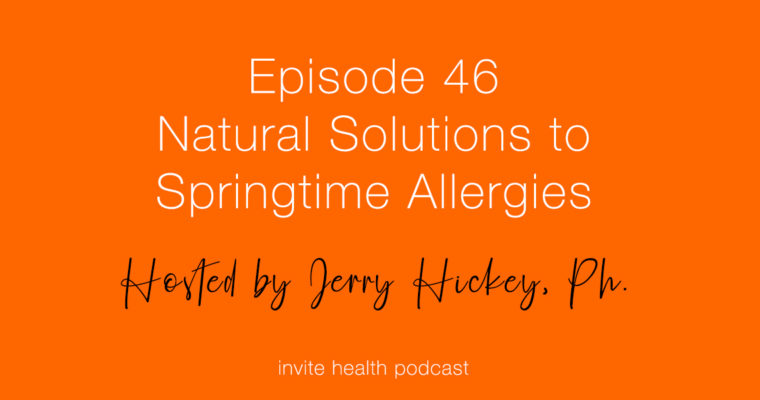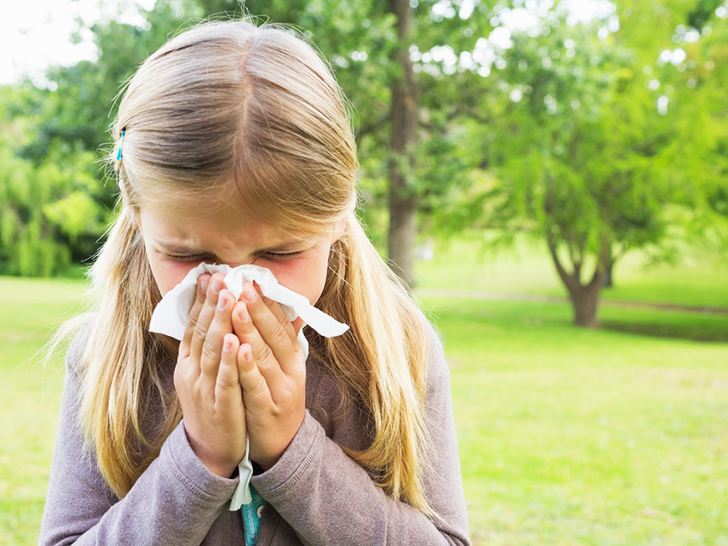Photo by Anna Kolosyuk on Unsplash
Many times, there are other factors besides hair and eye color that get passed down to your children. And there are numerous reasons why your children could be plagued with the same conditions as yourself or your family members. Here are the top six health problems that your kids might inherit from you, the signs that could signal their existence in your child, and what to do to help treat or prevent them.
Allergies
If you or your spouse has allergies, there is a great chance that your children will inherit them. Howard Saal, M.D., director of clinical genetics at the Cincinnati Children’s Hospital Medical Center in Ohio explains, “There is about a fifty-fifty chance but don’t expect them to be sensitive to the same things you are. We pass on only the susceptibility to allergies, which can manifest in myriad ways.” Signs that your children have inherited your susceptibility to allergies can be anything from a runny nose to hives. However, the most common are Sinus, Ear infections, Stuffy nose, Itchy nose, Itchy eyes, Rashes, Hives, Wheezing cough and Chronic cough.
Wheezing and chronic cough can also be signs of asthma and might one of the top signs of an allergy since, in many cases, asthma and allergies go hand-in-hand. If you start to notice these symptoms in your child, speak to your pediatrician.
Your child’s doctor can suggest medications and run numerous tests to pin-point specific allergies.
Need more information on allergies? Click here!
Irritable Bowel Syndrome (IBS)
There is a high chance that your children can inherit your IBS. According to research from the University of Sydney in Australia, please who suffer from IBS are more than twice as likely to have a first-degree relative with the same symptoms. Classic signs your child might have IBS include abdominal pain or bouts of constipation or diarrhea. Colic, a precursor to IBS, can appear very early in your child’s life. Tanya Remer Altmann, M.D., author of “Mommy Calls” explains, “IBS is a diagnosis of exclusion. We want to rule out the possibility that something more serious is going on, like inflammatory bowel disease.”
If your child does inherit your IBS, as you already know it can be managed with lifestyle changes. These can include avoiding certain foods, adding probiotics like yogurt, stress-management techniques, and daily exercise.
Clinical studies from the top leading research institutions that observe digestive activity consistently point to the benefits of targeted nutrition for gastrointestinal health.
Migraines
According to CNN.com, your child has as much as a 50 percent chance of developing migraines if one parents gets them and, of course, an even higher percentage if both do. Symptoms to keep an eye out for include Nausea, Vomiting, Sensitivity to light and sound, Motion sickness and throbbing pain in the head.
Identifying your child’s trigger to migraines is the first start in treating them. It could be anything from what they eat to how they were generally feeling at the time the migraine began. Some triggers can include fatigue and overexertion. Most of the pain can be dulled or treated by going to sleep or taking some ibuprofen. However, Saal suggests seeking out a pediatric neurologist since the unrelenting pain can have a powerful ripple effect on nearly every aspect of your child’s life.
Eczema
Eczema is actually a type of allergic reaction and, because of this, the chances of your child inheriting eczema from you are very high – about fifty percent. However, even if you do not have eczema, your child can still develop it. Some triggers of eczema include Cold, dry environments, Dairy, Eggs, Wet, dirty surfaces (for the arms) and Stress.
The good thing (as far as diagnosing this condition) is that eczema is extremely easy to see since the rash can make the skin dry, itchy, and red. These patches of the rash can usually be found on your child’s cheeks, elbows, hands, and knees. Take your child to his/her pediatrician to diagnose this condition and help you develop a routine to reduce the eczema breakouts. Make sure any cream they are using is dye and fragrance-free, as to not spark an outbreak.
This new study says DHA supplementation improves Eczema. Click here to read the study!
Vision Problems
Stuart Dankner, M.D., a pediatric ophthalmologist says that nearsightedness, color blindness, and lazy eye are often inherited. If both parents are nearsighted, a child has a 25 to 50 percent chance of inheriting their parent’s vision problems. Signs of vision problems include constant headaches and squinting. Lazy eye can be difficult to catch but a pediatrician can easily screen for it. If your child’s eyes cross and persist, schedule an exam. Early detection and correction of vision problems is the only sure way to treat them and make your child as comfortable as possible.
Many scientific studies have shown the benefits of eye health supplements to support visual acuity and stamina.
Your Emotions
Certain psychological and emotional issues can run in your family. And, because of this, they can easily be inherited by your children. Issues like ADHD, anxiety, depression, bipolar disorder and OCD have strong genetic components.
It is important to share your family’s mental history, as it can greatly affect your children. If there are warning signs of any condition, your child’s pedestrian will be able to spot and diagnose it right away. The faster the diagnosis, the easier to treat.
Source: www.cnn.com
Share your story – What kind of inheritable conditions, symptoms or other health problems are you noticing in your children as they grow up?






